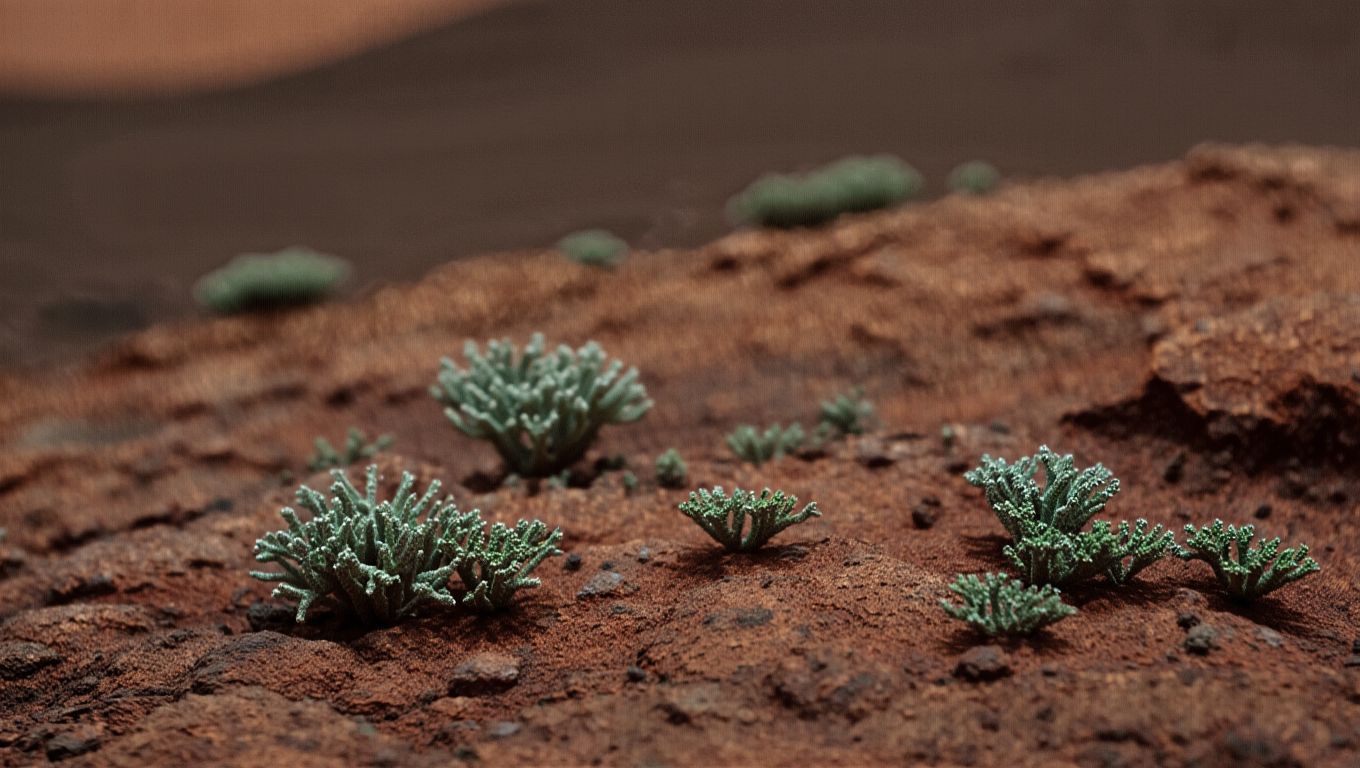Lichens Show Resilience in Mars-Like Conditions
Recent studies have revealed that certain lichens can survive harsh Martian conditions. This discovery challenges previous beliefs about life on Mars. The research shows that lichens not only endure extreme environments but also remain metabolically active. These findings have implications for astrobiology and the potential for life beyond Earth.
About Lichens
Lichens are symbiotic organisms. They consist of a fungus and either algae or cyanobacteria. This partnership allows them to thrive in extreme environments, such as deserts and polar regions. Their unique biology makes them resilient to harsh conditions.
Research Overview
Scientists conducted experiments simulating Martian conditions. They tested two lichen species – Diploschistes muscorum and Cetraria aculeata. These species were chosen for their contrasting traits. The lichens were exposed to a Mars simulation chamber for five hours. This chamber replicated the planet’s atmosphere, pressure, temperature variations, and radiation levels.
Findings on Metabolic Activity
The results indicated that the fungal component of the lichens remained metabolically active. This was true even under conditions of darkness and high levels of X-ray radiation. These findings suggest that lichens can survive on the Martian surface despite extreme radiation exposure.
Implications for Astrobiology
The study’s outcomes challenge the idea that ionizing radiation is a barrier to life on Mars. They open new avenues for research into the survival of microbial and symbiotic life in extraterrestrial environments. The findings suggest that lichens could potentially colonise other planets, reshaping our understanding of life in the universe.
Future Research Directions
Further studies are essential to explore the long-term effects of chronic radiation exposure on lichens. Researchers recommend conducting experiments in actual Martian environments. This will deepen our understanding of how these organisms adapt to alien worlds.
Month: Current Affairs - April, 2025
Category: Science & Technology Current Affairs







